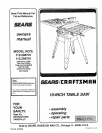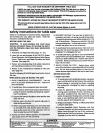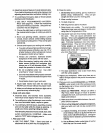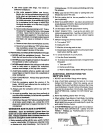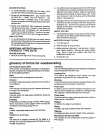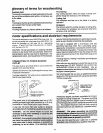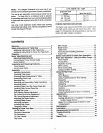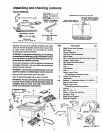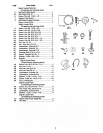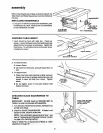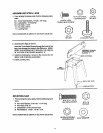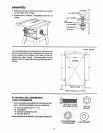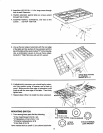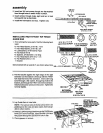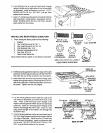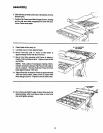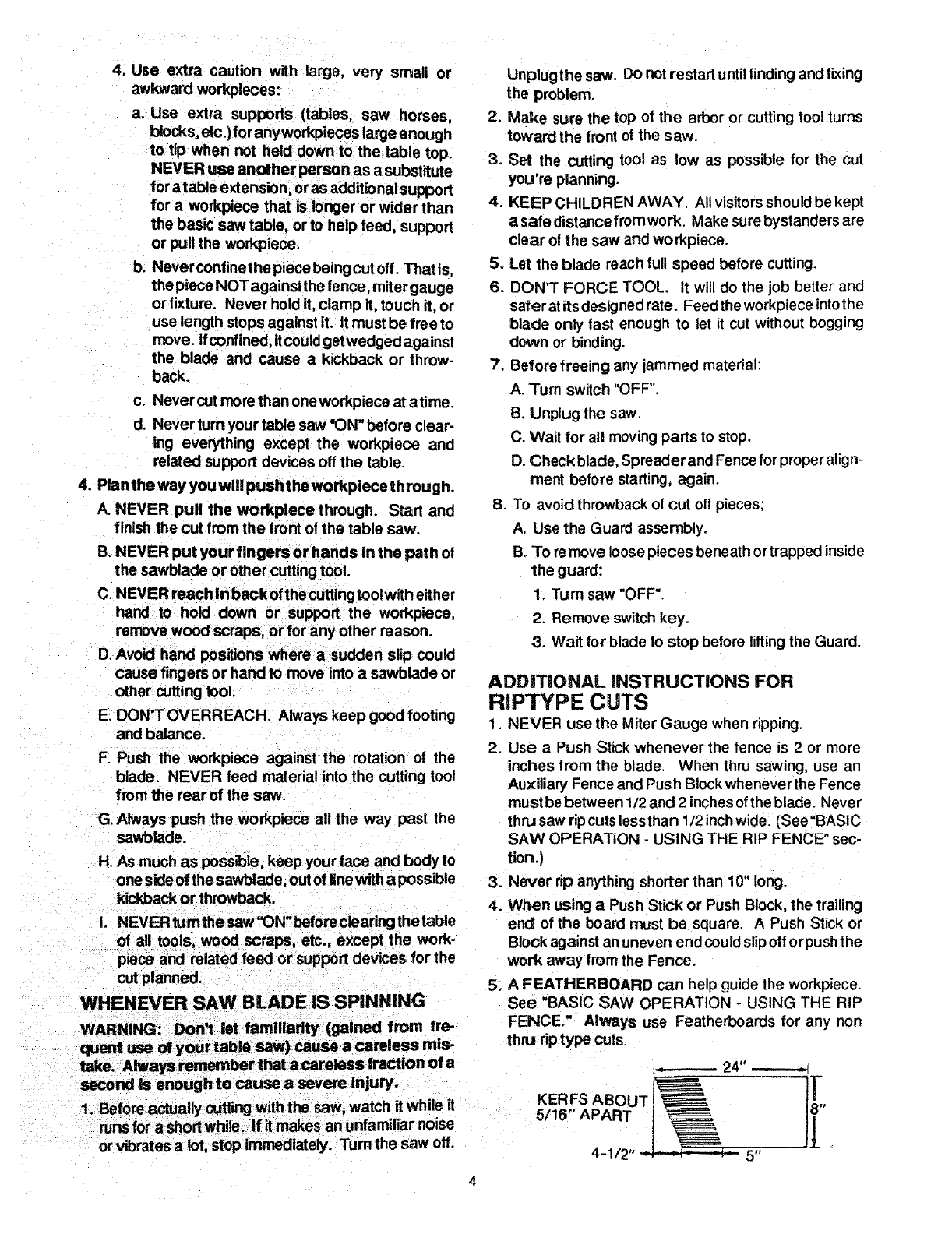
4. Use extra caution with large, very small or
awkward workpieces:
a. Use extra supports (tables, saw horses,
b!ocks,etc.) for anyworkpieces large enough
totip when not held down to the table top.
NEVER use another personas a substitute
for atable extension, or as additional support
for a workpiece that is longer or wider than
the basic saw table, or to help feed, support
or pull the workpiece.
b. Nevercontinethepiecebeingcutoff. Thatis,
the piece NOTagainstthe fence, mitergauge
or fixture. Never hold it, clamp it, touch it, or
use length stopsagainst it. It must be free to
move. If confined, itcouldget wedged against
the blade and cause a kickback or throw-
back.
c. Never cutmore than oneworkpiece at atime.
d. Never turn your table saw "ON" before clear-
ing everything except the workpiece and
related support devices off the table.
4. Plan the way youwill pushthe workplecethrough.
A. NEVER pull the workplece through. Start and
finish the cut from the front of the table saw.
B. NEVER put your fingers or hands in the path of
the sawblade orother cutting tool.
C. NEVER reach in back ofthecuttingtool with either
hand to hold down or support the workpiece,
remove wood scraps, orfor any other reason.
D. AvoU hand positions where a sudden sl;p could
cause fingers or hand to move into a sawblade or
other cutting tool.
E. DON'T OVERREACH. Always keep good footing
and balance.
F. Push the workpiece against the rotation of the
blade. NEVER feed material into the cutting tool
from the rear of the saw.
G. Always push the workpiece all the way past the
sawblade.
H. As much as possible, keep your face and body to
one side of the sawblade,out of linewith apossible
kickback or throwback.
L NEVERtumthesaw"ON"beforeclearingthetable
of all tools, wood scraps, etc., except the work-
piece and related feed or support devices for the
cut planned.
WHENEVER SAW BLADE IS SPINNING
second is enough to cause a severe Injury.
1. Before actually cutting with the saw, watch it while it
runs for ashort while. If itmakes an unfamiliar noise
or vibrates a lot,stop immediately. Turn the saw off.
Unplug the saw. Do notrestart untilfinding andfixing
the problem.
2. Make sL=rethe top of the arbor or cutting tool turns
toward the front of the saw.
3. Set the cutting tool as low as possible for the cut
you're planning.
4. KEEP CHILDREN AWAY, Allvisitorsshouldbe kept
asafedistancefrornwork. Make surebystanders are
clear of the saw and workpiece.
5. Let the blade reach full speed before cutting.
6. DON'T FORCE TOOL. It will do the job better and
saferat itsdesigned rate. Feed theworkpiece intothe
blade only fast enough to let it cut without bogging
down or binding.
7. Before freeing any jammed material:
A. Turn switch "OFF",
B. Unplug the saw.
C. Wait for all moving parts to stop.
D. Check blade, Spreader and Fencefor proper align-
rnent before starting, again.
8. To avoid throwback of cut off pieces;
A, Use the Guard assembly.
B To remove loose pieces beneath ortrapped inside
the guard:
1. rum saw "OFF".
2. Remove switch key.
3. Wait for blade tostop before liftingthe Guard.
ADDiTiONAL INSTRUCTIONS FOR
RIPTYPE CUTS
1. NEVER use the Miter Gauge when ripping.
2. Use a Push Stick whenever the fence is 2 or more
inches from the blade. When thru sawing, use an
Auxiliary Fence and Push Block whenever the Fence
must bebetween 1/2 and 2 inchesofthe blade. Never
thru saw ripcuts lessthan 1/2 inchwide. (See"BASIC
SAW OPERATION - USING THE RIP FENCE" sec-
tion.)
3. Never rip anything shorter than 10" long.
4. When using a Push Stick or Push Block, the trailing
end of the board must be square. A Push Stick or
Block against an uneven end couldslip off orpushthe
work away from the Fence.
5. A FEATHERBOARD can help guide the workpiece.
See "BASIC SAW OPERAT{ON - USING THE RIP
FENCE." Always use Featherboards for any non
thru riptype cuts.
KERFS ABOUT
5/16" APART
_...-------- 24"



